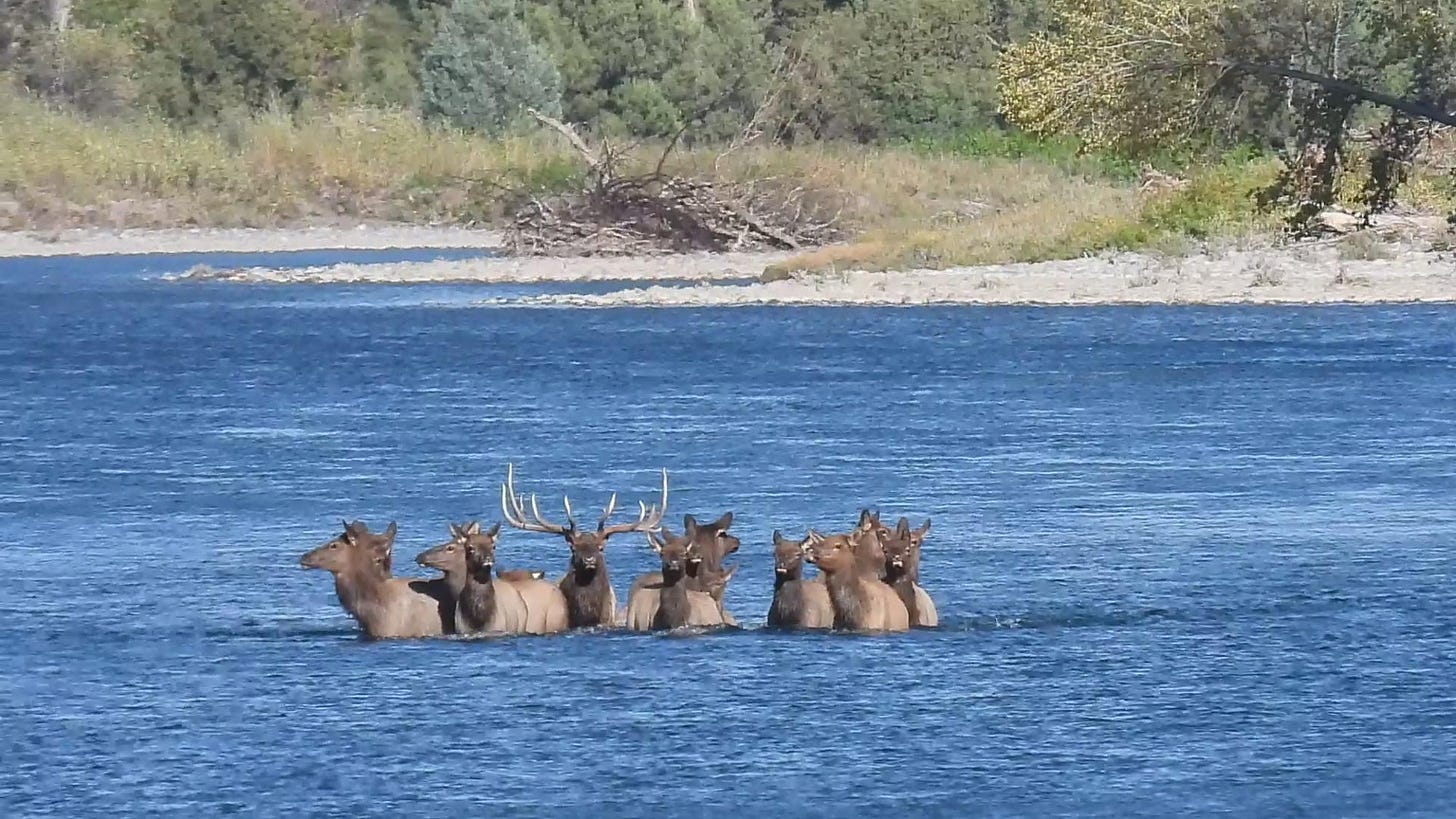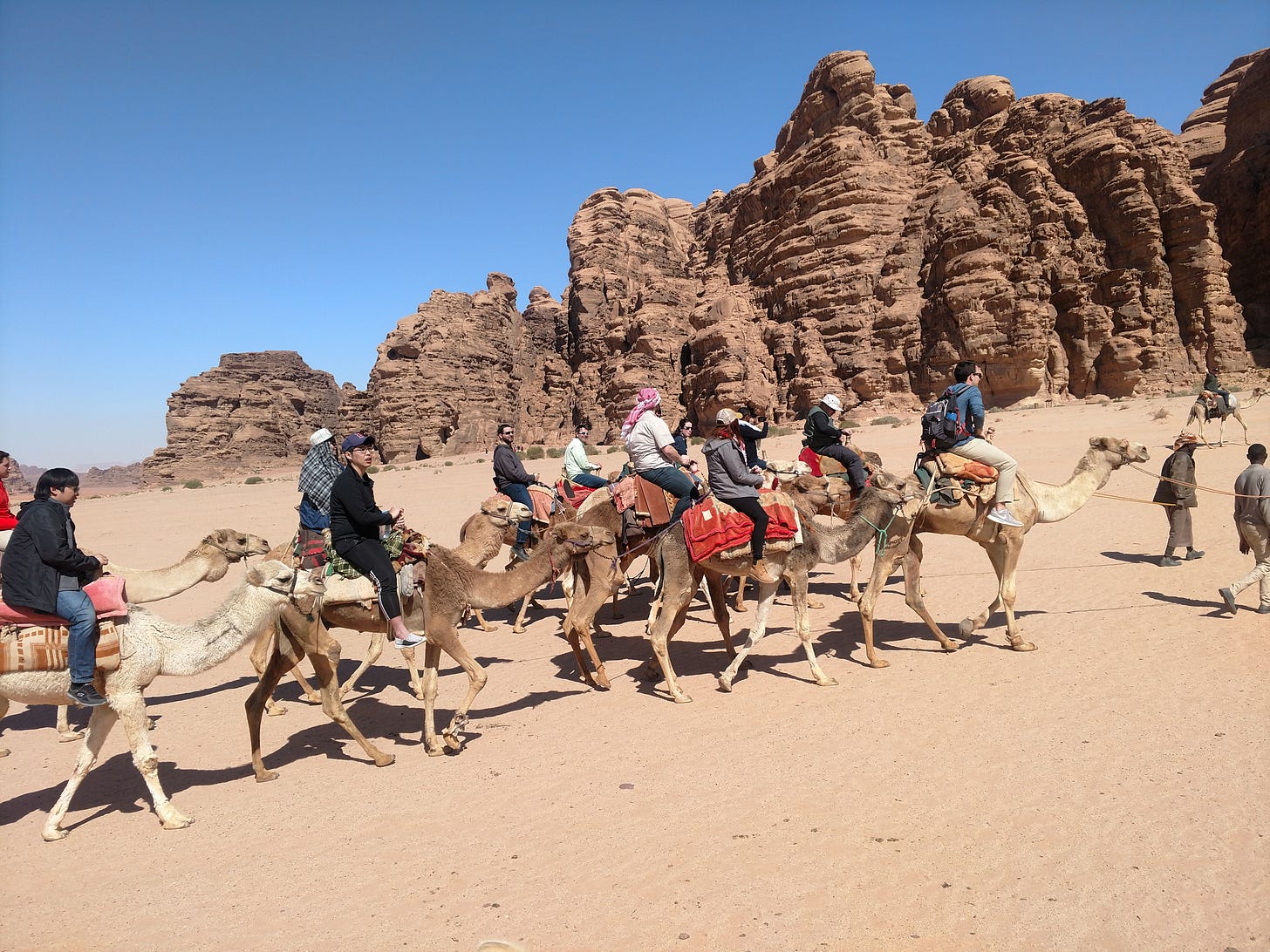Raising Your Horn with a Stiff Neck
The ins and outs and ups and downs of Psalm 75.
Right in the middle of the Psalter is a fun poem with number 75 in the Masoretic, 74 in the Greek. Here’s a link if you want to read it in the King James Version. There are 3 observations I want to quickly point out in this psalm. The first is a point of superiority of the Greek over the Hebrew. The second is a reconciliation of another difference between the Greek and Hebrew. Third and final, I want to show you a subtle pattern in the psalm’s 2nd half.
1) For thy name is near?
Most English translations of the first verse read something like:
“We give thanks to you, God. We give thanks, for your name is near.”
But the Greek is translated thus:
“We give thanks to you, God. We give thanks and call on your name.”
Not only does the Greek make more sense, it is more correct (i.e, original) than the Hebrew MT. The mental gymnastics that scholars go through to prop-up the Hebrew text here are impressive. One scholar points to nearby psalms that imply the power of the name of the LORD, as if proximity of that idea in wholly separate compositions has relevance. This expression, “your name is near”, appears nowhere else in the Bible. By contrast, “we call on your name” appears in a good number of other places in the psalms (e.g., Psalm 79:6, 80:18, 116:4, 116:13). From Genesis to Joel, the expression “calling on the name of the Lord” and similar expressions stand as a consistent, pervasive, and powerful theme throughout the entire biblical narrative.
So how did the Hebrew get messed up? Answer: Simple scribal mistake. Let’s have a look, using this table:
Hebrew is read right-to-left, so the columns are identified in that direction. Rows 1 and 5 are the Hebrew letters, with their English equivalents in rows 2 and 6. Recall that the Hebrew scriptures were originally written without most vowels and sketchy, if even existing, word spacing. Basically a bunch of consonants strung together.
You can see that the letters here in line 1 and 5 are the same letters in the same order. Row 1 is the Hebrew that has come down to us in the Masoretic text. Row 5 is the same Hebrew lettering but with one difference in spacing. the letter “B” (bet) is moved to the 2nd word. Moving this one letter from the 1st word to the 2nd word, makes this Hebrew equivalent in meaning to the Greek.
To make this explanation more plain to English poetry readers, take this snip-it of a poem and identify the error in it:
I think that I shall never see
A poem lovely as a tree.
A tree whose hungry mouth is prest
Against the earth’s sweet flowing breast;
A tree that looks at God all day,
And lifts her leafy arms top ray.
I did an informal survey, asking 10 friends to spot the error in this Joyce Kilmer composition. Nine of 10 correctly identified that the error is in the last line: “top ray” should be “to pray”. Even though “top ray” is not grammatically impossible, especially in poetry, it is unusual and “to pray” makes much more sense. This is exactly what we see at the beginning of Psalm 75: The first letter in 2nd word moved to last letter in 1st word.
To wrap-up on this first topic, an additional piece of evidence that the Greek here is correct and the Hebrew wrong will be evident to any of you who can read the MT:
hodinu veqaru bishemekha flows better with the next line, siperu nifleotekha than hodinu veqarov shemekha. 1
2) Are you talking to me?
For the second topic in this psalm, I would like to thank my buddy Dr. Jeff Reed for his insights on animal vocalizations. Jeff was recently on the big stage at TED for an excellent talk about wolf vocalization. You can check that out here:
Jeff and I were discussing Psalm 75:5 and trying to understand the Greek variant. The Hebrew is pretty clear and makes sense: Do not lift up your horn on high, or speak with a stiff neck (RSV). But the Greek is translated: Do not lift up your horn on high; do not speak injustice against God (NETS). There is no simple path from A to B in this case as there was in the first topic. How are we to understand this combative speech between God and his antagonist in verse 5? How does that relate to raising one’s horn and having a stiff neck?
The answer comes from the animal kingdom. Readers from North America may be familiar with the call of elk during the rut. Not just the call, but also the posture. When elk are positioning themselves for battle — battle for a mate — they lift their horns. This posture is a posture of power, superiority, and belligerence. It says: “I am the strongest; I am the best; I am going to crush you!”
This victorious bull is crossing the Yellowstone River with his harem. At least a dozen cow elk surround him and they belong to him. He will breed them all.
With respect to speaking with a stiff neck (or speaking injustice against God), elk, deer and a few other ungulate species have boisterous calls during the rut. Elk bugle; deer grunt. Here is a typical elk call:
When they call, they throw their head back (raise the horn) and let loose:
That, by metaphor, is speaking injustice against God. The Jewish translator of this psalm decided not to give a word-for-word translation (“speak with a stiff neck”). Instead, he chose to convey the meaning and the adversary. In the Bible, raising the horn is generally seen as an act of arrogance or vainglory when done on one’s own power. It is the opposite of the virtue of humility. Psalm 75 makes this clear throughout. It is God who raises up the horn. He exalts and brings low as He sees fit.
Let’s move away from North American elk and take a look at the deer of the Bible. The most common species in Bible times was the Persian Fallow Deer. These were nearly hunted out of existence in the Levant but have been re-introduced by Israeli biologists and their numbers are increasing on preserves.
This public image of a stag from Wikipedia is wonderful. It captures everything. You see the raised horns. You see the stiff neck. You see his “passion”. What about his sound? Let’s take a listen:
Sounds more like a loud belch to me than a grunt, but “grunt” is the common term for this call.
Putting together the audio and visual from the animal kingdom helps us to reconcile the Greek and Hebrew of Psalm 75:5 and deepens our appreciation for what the author had in mind when he composed this wisdom poem. Bull elk and Persian fallow stag raise their horns, extend their necks, and call out to their challengers that they are “boss”. The females in the area are theirs and theirs alone. They will fight to the death if they have to. The original audience of this psalm, being far more connected to nature than most of us, would have understood this metaphor implicitly.
3. Up down; up, down; up down; up down; up down
Psalm 75 has two clear parts: A) verses 1-6 and B) versus 7-11. Part B has an interesting pattern that I haven’t seen anyone comment on. Here is my own translation… very literal:
7. For not from the going out (sunrise/UP) or from the setting place (sunset/DOWN),
And not from desert mountain (DOWN UP).
8. For God is judge.
This one he humbles (DOWN), and this one he exalts (UP).
9. For there is a cup in the hand of the Lord,
And wine foaming, full (UP), mixed.
And He pours this way and that.
Indeed, the dregs will drain (DOWN).
All the wicked of the earth will drink them.
10. But I will declare forever;
I will sing to the God of Jacob.
11. And all the horns of the wicked I will chop off (DOWN).
The horns of the righteous will be lifted up (UP).
So in 5 verses we have 5 pairs of UP and DOWN. This is clearly intentional in my mind, because the very first pair are atypical words for Sunrise and Sunset (East and West). Instead of the typical Hebrew word for sunrise (מזרח) or the typical word for East (קדמ), the word chosen means “the going out place”. That is, the sun goes out from its resting place in the East. Similarly, instead of the more common Hebrew expression for sunset (בּא השּׁמשׁ), the word chosen refers to the West (i.e., the direction where the sun goes down).
What about this unusual expression, “desert mountain”? That is the literal translation. Most Bibles will have “south” or “from the wilderness comes lifting up”. Both of these translations are problematic. Actually, the Greek and Hebrew here are clear: “desert mountains”. Below is a pic I took in the Arabah desert of Jordan, south of Petra. It shows in the background, a “desert mountain”. There are other mountains down there that are more impressive, but this is what I found on my camera roll. The sand at the bottom is about 50 meters below sea level. The top of the formation is about 50 meters above sea level. It is a place of both low and high2. I believe that is the idea that we are intended to understand. It fits the pattern I see in the surrounding verses.
So what is the message here in verse 7? It is not clear. Some have speculated that these are references to direction East, West, South, with the idea being not to look all over the place for guidance or victory. The problem I have with this is that North is missing. Personally, I think these are other references to sources of divine help. The psalmist is telling us not to look for signs or divine sway from the sun, as the Egyptians do. Nor should we look to the deities that reside in the desert high places, as the Canaanites do — many are depicted in desert rock etchings, including the pagan gods Baal and Ashera.
“Desert mountain” may even be a reference to Mt. Sinai where Moses, the God-seer, received direct revelation. Thus, not by signs in the heavens above or places of oracle on the earth below. Rather, our fortune — our cup to drink — is in the hand of God.
For those of you expecting an aleph in “we call”, check your Hebrew grammar and you will find that a weak aleph in the 3rd radical (III-Aleph) can be dropped (e.g., Ez 28:16).
I do not assert here that the author had any idea of elevation above or below sea level. However, he would know that from any starting point, travel to one of these desert mountains was downhill all the way.










Nice work! Very interesting points that bring some more sense and more intrigue to the text. I was entirely unfamiliar with the animal behavior so I never would’ve pieced that together. Very cool.